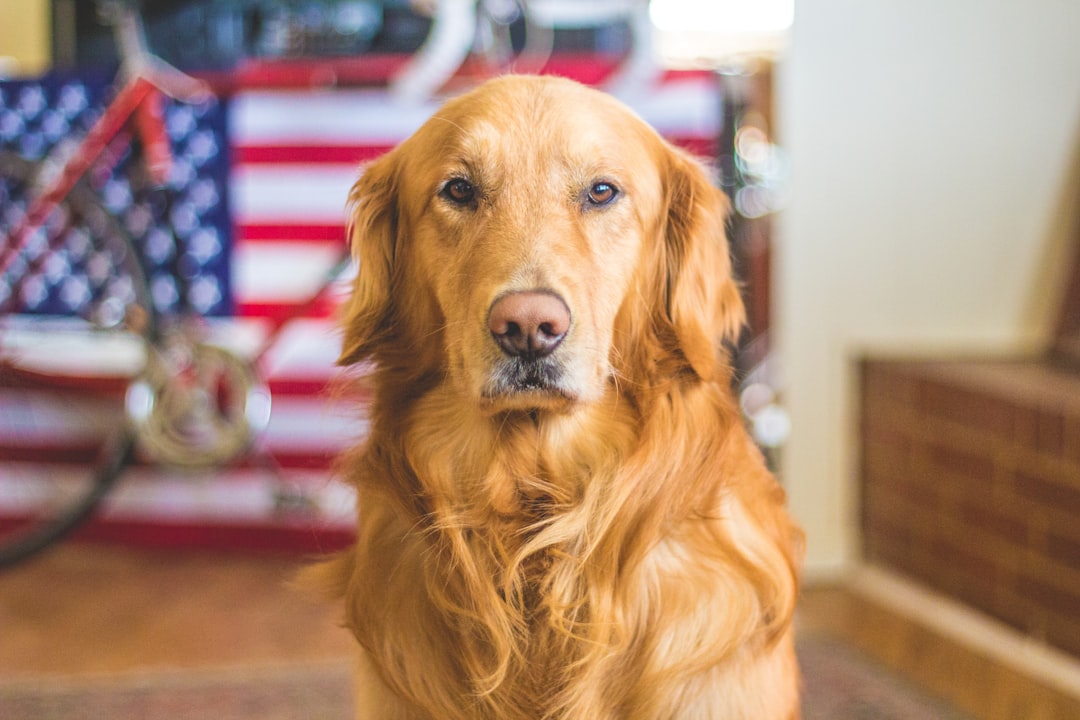Keeping Your Pup Healthy: A Comprehensive Guide to Preventing and Managing Dog Diarrhea
This article provides tips and information on preventing dog diarrhea and maintaining a healthy digestive system for your furry friend.
Dog Diarrhea: A Common Canine Condition
Dog diarrhea is a prevalent issue affecting dogs, varying in frequency, duration, and intensity. It is essential for dog owners to understand that diarrhea in dogs can occur for various reasons, including dietary indiscretion, a sudden change in diet, food intolerance, allergies, or the presence of parasites or bacteria. For example, dietary indiscretion, such as a dog consuming spoiled food or garbage, can lead to acute gastrointestinal upset resulting in diarrhea. This emphasizes the importance of monitoring a dog’s diet and preventing access to potential harmful food items.
In addition to the differences between dog and human digestive systems, it’s important to note that the consistency and color of diarrhea can provide essential clues about its underlying cause and the overall health of the dog’s gut. For instance, if a dog’s diarrhea is watery and accompanied by mucus or blood, it could indicate a more severe underlying issue, such as an infection or inflammatory condition. Therefore, closely observing the characteristics of the diarrhea can help in determining the appropriate course of action, whether it involves home care or seeking veterinary attention.
Furthermore, recognizing that prolonged diarrhea in dogs can be indicative of underlying health problems is crucial. For example, if diarrhea in dogs persists for an extended period, it can lead to dehydration, nutrient deficiencies, and weight loss. Additionally, chronic diarrhea can also be a symptom of more serious conditions such as inflammatory bowel disease or gastrointestinal cancer. Therefore, understanding the potential risks associated with prolonged diarrhea underscores the importance of promptly addressing this common canine condition to ensure the overall well-being of the dog.
Recognizing the Signs and Causes of Dog Diarrhea
Dog diarrhea is a common condition that can vary in frequency, duration, and intensity. Understanding the top causes of dog diarrhea is crucial for preventing and managing this issue. Dietary indiscretion, such as scavenging or eating spoiled food, is a significant cause of dog diarrhea. Additionally, abrupt changes in diet, food intolerances, and allergies can also trigger digestive upset in dogs. For example, feeding human food scraps to dogs, especially fatty or spicy foods, can lead to diarrhea due to their inability to digest certain ingredients effectively.
It’s important to recognize the differences between the digestive systems of dogs and humans. While humans have a longer digestive tract designed for processing a wide variety of foods, dogs have a shorter digestive system, making them more susceptible to dietary indiscretions and intolerances. This distinction emphasizes the need for pet owners to be mindful of the type and quantity of food they offer to their canine companions to prevent digestive issues.
In addition to the causes mentioned, the consistency and color of a dog’s stool can provide valuable clues about the underlying cause of diarrhea and the overall health of the dog’s gastrointestinal system. For instance, watery diarrhea may indicate a viral or bacterial infection, while mucus or blood in the stool can suggest inflammation or more serious health issues. By paying attention to these details, dog owners can better understand the root cause of their pet’s diarrhea and take appropriate action to address it.
Managing Dog Diarrhea at Home
When it comes to managing dog diarrhea at home, there are several strategies that can be employed to alleviate the symptoms and promote recovery. One of the primary approaches is fasting, which involves withholding food from the dog for a period of 12 to 24 hours. This can provide the gastrointestinal tract with an opportunity to rest and recover, allowing the digestive system to settle and potentially halt the diarrhea.
In addition to fasting, over-the-counter treatments can also be considered for managing dog diarrhea at home. However, it’s crucial to exercise caution and consult with a veterinarian before administering any medications to ensure that they are safe and appropriate for the specific condition of the dog. Furthermore, homemade remedies like rice water, plain cooked white rice, pumpkin, yogurt, and probiotics have been found to be beneficial in promoting digestive health and addressing diarrhea in dogs. For instance, probiotics can help restore the balance of beneficial bacteria in the gut, which in turn supports the overall digestive function and aids in alleviating diarrhea symptoms.
Moreover, it’s important to recognize the potential risks associated with prolonged diarrhea, notably dehydration, which can have serious consequences for the dog’s health. By understanding the significance of maintaining proper hydration, pet owners can take proactive measures to ensure that their dogs receive adequate fluids during episodes of diarrhea. Furthermore, conducting a gut health analysis can provide valuable insights into the underlying causes of diarrhea, enabling a more targeted and effective approach to managing this common canine condition.
Seeking Veterinary Care and Long-Term Solutions
Recognizing the signs of when to seek veterinary care for your dog’s diarrhea is essential for their well-being. If the diarrhea persists for more than 48 hours, it could be indicative of an underlying health issue. Furthermore, if the diarrhea does not stop, or if dehydration or other physical symptoms are present, it is imperative to seek medical attention for your pet. For example, if you notice blood in your dog’s stool or if they are experiencing lethargy, vomiting, or a change in behavior, contacting a vet becomes crucial to rule out any serious health concerns.
In addition to seeking veterinary care, managing diarrhea at home with rest, hydration, and a bland diet is a common approach. This can help ease the digestive system and provide relief to your dog. Moreover, the use of probiotics, fiber, and catnip has been known to aid in soothing the gastrointestinal tract and promoting a healthy digestive system [4]. For instance, probiotics help restore the balance of good bacteria in the gut, while fiber can aid in regulating bowel movements. These home care remedies can be beneficial, but it is important to remember that they are not substitutes for professional veterinary advice.
Regular monitoring of your dog’s bathroom habits is also crucial. It can help detect any concerning changes in their health and provide important information to the veterinarian regarding the progression of the diarrhea in dogs and its potential causes. By being observant of your dog’s bathroom behavior, you can contribute to the accurate diagnosis and treatment of their condition, as well as ensure their long-term digestive health.
Transitioning Back to a Regular Diet
When transitioning a dog back to a regular diet after a bout of diarrhea, it is essential to do so gradually. Fasting the dog for 12 to 24 hours can help the digestive system to rest and recover, allowing it to expel any irritants or toxins that may have caused the diarrhea. This fasting period gives the gastrointestinal tract time to heal, reducing the chances of continued irritation that could prolong the diarrhea.
After the fasting period, a homemade soup or broth can be introduced to ease the transition back to a regular diet. These homemade preparations can provide essential nutrients and hydration while being gentle on the stomach, promoting recovery and rebuilding the digestive system’s strength. Additionally, incorporating easily digestible ingredients, such as plain cooked white rice and pumpkin, can further aid in the recovery process by providing a bland yet nourishing diet.
Moreover, certain herbs such as slippery elm, L-glutamine, and marshmallow root can play a crucial role in soothing the gastrointestinal tract and reducing inflammation. For example, slippery elm contains mucilage, a gel-like substance that can coat and soothe the irritated lining of the intestines, while L-glutamine, an amino acid, supports the regeneration of the intestinal cells. Similarly, marshmallow root possesses properties that can help reduce inflammation and irritation in the digestive system, contributing to the healing process and promoting a healthy gut environment for the dog.
In cases where a dog’s diarrhea persists for an extended period, it may be necessary to seek further testing and treatment from a veterinarian. Prolonged diarrhea could indicate an underlying health issue that requires medical attention, and a veterinarian’s expertise is crucial in diagnosing and addressing any potential concerns to ensure the dog’s well-being.
Conclusion: Ensuring Your Dog’s Digestive Health
In ensuring your dog’s digestive health, it’s crucial to recognize the signs and causes of dog diarrhea, as well as the management strategies for this common canine condition. Understanding the top causes of dog diarrhea, such as dietary indiscretion, change in diet, food intolerance, and allergies, is essential for prevention. For instance, if your dog experiences diarrhea after consuming a new type of food, it may indicate a food intolerance or allergy, prompting the need to adjust their diet accordingly.
Moreover, managing dog diarrhea at home involves various techniques, including fasting, over-the-counter treatments, and homemade remedies like rice water, plain cooked white rice, pumpkin, yogurt, and probiotics. For example, fasting your dog for 12 to 24 hours can help stop diarrhea and provide their digestive system with time to rest and recover. Additionally, the potential benefits of probiotics in preventing and treating dog diarrhea can aid in maintaining a healthy balance of gut bacteria, thereby supporting digestive health. However, it’s important to seek veterinary care if the diarrhea persists for more than a few days to ensure your dog’s well-being.
By understanding these aspects and being proactive in monitoring your dog’s digestive health, you can effectively prevent diarrhea and maintain a healthy gastrointestinal system for your beloved pet. Regular monitoring and seeking professional help when necessary are essential components of ensuring the overall well-being of your dog’s digestive health.



